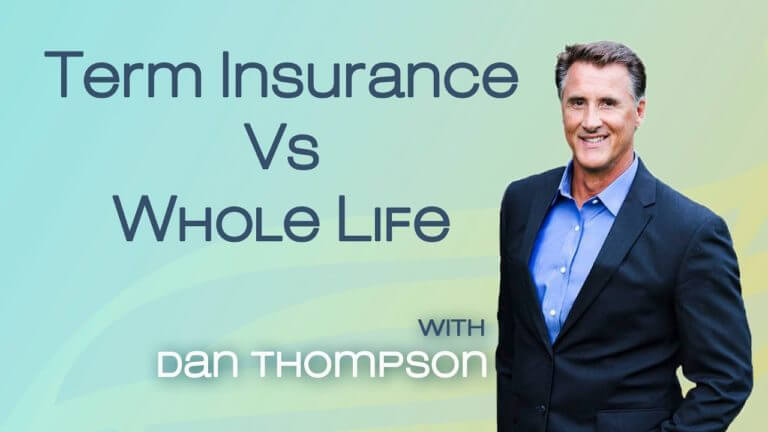
Renting vs Owning your life insurance policy is the best way to describe the term vs whole life insurance debate. Many people are not aware that they can own …

Renting vs Owning your life insurance policy is the best way to describe the term vs whole life insurance debate. Many people are not aware that they can own …
Dan, I appreciate you taking the time to educate and enlighten through your video series. By taking the time to educate myself, I have potential saved myself from costly financial mistakes, given that I was approached by someone from TransAmerica wanting to sell me an Indexed Universal Life policy. Your videos have done a phenomenal job breaking down these products in ways that I'm sure the agents that approached me are incapable of doing. Keep up the good work!!!
Hello Dan. I have been a financial professional for over 28 yrs. Involved in the stock market as well as selling insurance. You're new found passion for selling whole life insurance vs putting money into volatile stock market picks is somewhat noble. I say somewhat, because I know how much commission is made when selling someone a whole policy vs having someone purchase an index fund with some term insurance. Ihave heard that sale idea used quite often over the years and always find that comparison somewhat misleading.
As to the comparison of owning your insurance vs renting your insurance, it's important to recognize the cost difference in renting vs owning and what could be done with difference. When owning a home(or should I saying buying a home because you never own it until the mortgage is fully paid off), the first years liability costs are much higher due to the down payment of 20% and monthly payments going to the mortgage which is mostly interest for the first 20 years of a 30 year mortgage. Building little equity in the early years. When buying a whole life policy, especially a front loaded cash value policy, you are building equity early only to see it dissipate later due to unusually high cost of insurance or mortality costs associated with owning the contract into your later years (70- 90 yrs old). That is why that comparison is flawed because once your mortgage is paid off there is nothing eating away at your ownership, unlike cash value insurance which is constantly draining the equity of the policy by rising insurance cost. Unlike the home which is paid for and owes no one anything, the CV policy can be lost or lapsed by not having enough cash value to cover the cost of insurance. Only the very affluent can afford to "OWN" their cash value policies into the later years, most everyone else will drain it for living purposes. There's an old saying that still rings true today, "I would rather own my cash and rent my insurance, than rent my cash and own my insurance" For most people that still make the most sense.